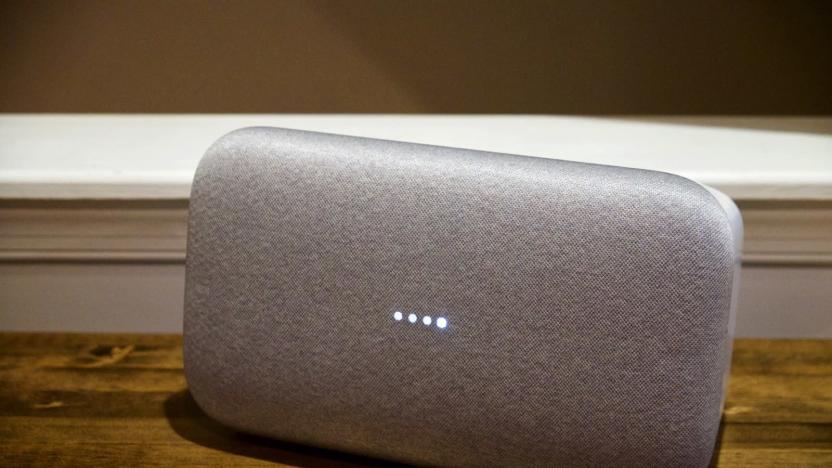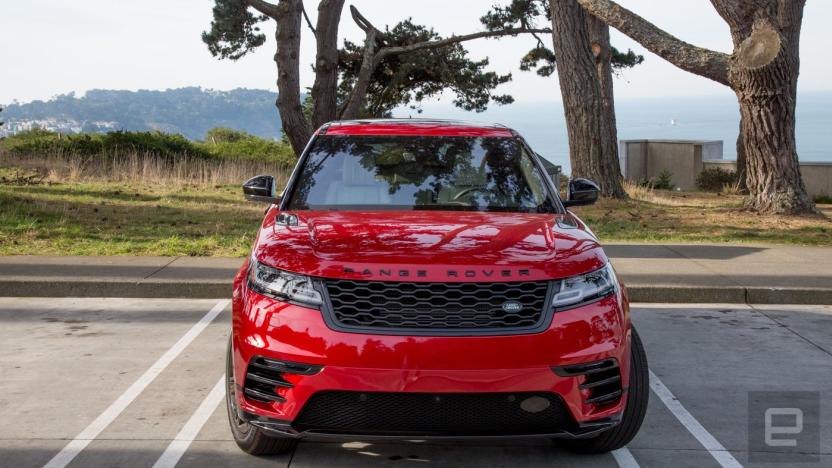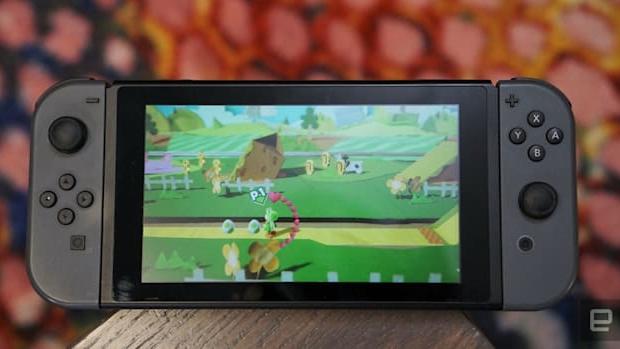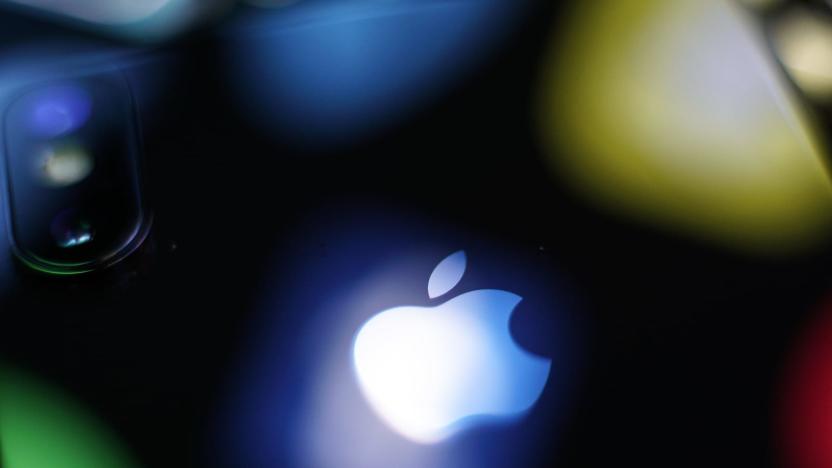International Trade Commission
Latest

US regulator rules that Google infringed on Sonos speaker patents
The US International Trade Commission has agreed with Sonos' claims that Google had infringed on its speaker and cast patents.

Jaguar Land Rover wants a US ban on VW SUVs for patent infringement
Jaguar Land Rover is trying to get a US import ban on SUVs from several Volkswagen-owned brands, including those made by Porsche, Audi and Lamborghini.

Gamevice's patent war against Nintendo rages on at the ITC
Even though Gamevice lost its years-long case against Nintendo last month, the company is brining a new complaint against the console manufacturer.

UC Santa Barbara sues Amazon and IKEA over LED lighting
UC Santa Barbara has had enough of retailers selling its patented LED light bulb technology without authorization. This week, the university filed a lawsuit charging Amazon, IKEA, Walmart, Target and Bed Bath & Beyond with infringing its patents. According to Nixon Peabody, the law firm representing UC Santa Barbara, this is the "first-of-its-kind direct patent enforcement campaign against an entire industry."

Qualcomm, Apple split results of iPhone patent cases
A US trade judge recommended a temporary sales ban on some models of iPhone following a ruling that found Apple infringed upon Qualcomm patents. The judge's decision was not binding and will be reviewed by the International Trade Commission (ITC). The commission also announced today that it rejected a proposed import ban in a separate case between the two companies after finding that Apple did not violate a Qualcomm-held patent.

Nintendo prevails in latest 3DS patent scuffle
The International Trade Commission has found in favor of Nintendo in a case involving three companies claiming the gaming giant infringed on their patents with the creation of the Nintendo DS and 3DS handhelds. In 2012, Technology Properties Limited LLC, Phoenix Digital Solutions LLC and Patriot Scientific Corporation - three companies specializing in patent licensing - filed suit against Nintendo, claiming that the company had infringed on a high-efficiency processor patent in the creation of its most recent handhelds. After nearly two years in court, Nintendo has emerged victorious. "We are very pleased with the commission's determination, which confirmed the judge's finding that Nintendo's products do not infringe the asserted patent," said Nintendo of America vice president Richard Medway in a statement trumpeting the company's victory. "Nintendo's track record demonstrates that we vigorously defend patent lawsuits, including cases in the ITC, when we believe we have not infringed another party's patent. Nintendo continues to develop unique and innovative products while respecting the intellectual property rights of others." That track record Medway mentions does indeed demonstrate that Nintendo is an ardent defender of its intellectual property rights, though the company's history in the courtroom is far from spotless. Less than a year ago, Nintendo was ordered to pay $30.2 million for infringing on a 3D display patent held by Seijiro Tomita. [Image: Nintendo]

Jury awards Microsoft $15 million in Motorola patent case
Microsoft has been awarded $15 million in damages by a jury following a patent infringement lawsuit first filed by Motorola in 2010. Motorola spokesman William Moss said in a statement (via the Seattle Times) that the company was "disappointed" but is looking forward "to an appeal of the novel legal issues raised in this case." Motorola Mobility claimed Microsoft had infringed upon five different patents in the original lawsuit, though four were eventually dismissed over the years. The fifth patent, which deals with peer-to-peer communication between two wireless devices, then became the focus of the case over the last few years. The last year saw the most developments in the case, with ITC Judge David Shaw ruling in favor of Motorola in April of last year. Shaw then pushed for an Xbox import ban in the US the following month, only to have the ITC remand his decision and push it back to an administrative law judge for a second look. The suit then went through the process again, though Shaw ruled in Microsoft's favor the second time around.

Obama administration vetoes ITC import ban on older iPhones and iPads
As reported by the Wall Street Journal, on Saturday the Obama administration vetoed the US International Trade Commission's import ban on older models of Apple's iPads and iPhones. The ITC ordered the ban after it found the Apple devices infringed a Samsung patent. The ban, had it been enforced, would have blocked importation of the GSM-compatible iPad 2 and iPhone 4. In his letter to the Chairman of the ITC, U.S. Trade Representative Michael Froman focused on the issue of the fair, reasonable and non-discriminatory (FRAND) licensing of standards-essential patents (SEPs). He writes that "licensing SEPs on FRAND terms is an important element of the Administration's policy of promoting innovation and economic progress." Apple contacted AllThingsD with a statement supporting the decision. "We applaud the Administration for standing up for innovation in this landmark case. Samsung was wrong to abuse the patent system in this way," an Apple spokeswoman said. Froman says this decision is "not an endorsement or criticism of the Commission's decision or analysis" and adds that Samsung may "continue to pursue its rights through the courts." You can read his full decision in this PDF. Apple has its own complaint pending against Samsung with the ITC, as noted yesterday. Although Verizon doesn't sell the GSM iPad 2 or iPhone 4, a company representative weighed in supporting the Obama veto in the WSJ last month.

Microsoft cleared of Motorola patent violation claim
The International Trade Commission has decided not to review the decision made last March by the administrative law judge presiding over Motorola's patent infringement case against Microsoft, thereby validating the judge's findings – which were in favor of Microsoft – and closing the case, Engadget reports. The initial scuffle, first filed in 2010, claimed that Microsoft had infringed upon five of Motorola Mobility's patents. Four patents were dropped from the case during the course of the proceedings, the last remaining patent covering peer-to-peer communication between wireless devices. Originally, ITC judge David Shaw ruled in favor of Motorola and subsequently recommended a ban on Xbox imports into the US. Then, in June of last year, the ITC remanded the decision back to the administrative law judge and asked him to take another look, effectively starting the process all over again. His second ruling, this time in favor of Microsoft, was delivered last March and will be the final word on the subject, now that the ITC has declined the opportunity to review his decision.

ITC awards victory to Apple in Motorola patent case
Apple won another round yesterday in a patent suit brought by Motorola Mobility against the Cupertino company. Motorola had complained to the International Trade Commission (ITC) about Apple's use of a proximity sensor in all versions of the iPhone, stating that it owned that patent. ITC Judge Thomas Pender ruled that the Motorola patent is invalid, and that Apple didn't violate it in designing the iPhone. This is the latest skirmish in the ongoing patent fight between Apple and Google, which purchased Motorola Mobility for US$12.5 billion mainly for a stash of 17,000 patents. Google hopes that those patents will help defend Android phone designs against infringement claims being made by Apple. Earlier this month, the Federal Trade Commission (FTC) agreed that a district court decision to deny Motorola's bid for an injunction on several Apple products was correct. In that case, the FTC felt that been using the threat of an injunction in what's called a "patent hold-up," when the owner of a standard-essential patent threatens legal action to pull in higher-than-usual royalty rates and licensing terms.

ITC rules that Samsung violates four Apple patents covering design, touch
The back and forth continues. US International Trade Commission Administrative Law Judge Thomas Pender has made an initial ruling that some Samsung's devices violate four Apple patents, including one iPhone design patent (the one you see above) and three software patents. Apple didn't manage a clean sweep, as Samsung was cleared of treading on two more patents, but the verdict still carries the all-too-familiar potential for a trade ban if the ITC maintains the findings in its final review. It's bleak news for the Korean company, which faced an initial loss to Apple at the ITC just last month -- even though large swaths of the mostly Android-based Galaxy phones and tablets in the dispute have long since left the market, an upheld verdict gives Samsung one less bargaining chip in a protracted legal war.

US International Trade Commission to investigate Motorola claims against Apple
The US International Trade Commission announced on Tuesday that it will look into Motorola's claim that Apple is infringing on patents that cover messaging notifications, location-based reminders, media playback and more. According to a Computerworld report, the ITC will assign the case to an administrative law judge who will hear the evidence and make a preliminary ruling. This initial decision could possibly result in a ban against the iPhone, iPad and iPod touch. Once an initial decision is made, the case will go to the full commission, which will make a final ruling on the infringement and any potential injunction. This process usually takes 16 months to complete, so the decision to look into this case won't affect this week's iPhone 5 launch.

ITC says Apple didn't violate four Samsung patents with iPad, iPhone
This just hasn't been Samsung's summer. On top of Apple winning its earliest civil lawsuit against Samsung, the International Trade Commission has just handed out an initial determination that Apple didn't violate any of four Samsung patents (including two reportedly standards-essential examples) by offering the iPad and iPhone. While Judge James Gildea didn't publicly outline why Apple was in the clear, he added that Samsung lacks a domestic business that uses the patents -- important when it's trying to claim economic harm in the US. The verdict still gives Samsung at least four months' room to breathe while the ITC reviews the decision, but it's hard to see Samsung enjoying the reduced offensive strength when it's already on the defensive in American courtrooms.

ITC decides Apple didn't violate Motorola WiFi patent after all, tosses case back to judge
Trouble looked to be brewing for Apple last April: an International Trade Commission judge made an initial ruling that Apple infringed on a standards-essential Motorola WiFi patent, raising the possibility of a trade ban if the verdict held true. The fellows in Cupertino may have caught a big break. A Commission review of the decision on Friday determined that Apple didn't violate the patent, and it upheld positions that exonerated the iPhone maker regarding two others. Apple isn't entirely off the hook, however. The ITC is remanding the case to the judge to review his stance that Apple hadn't violated a non-standards-based patent, which still leaves Apple facing the prospect of a ban. However, having to revisit the case nearly resets the clock -- we now have to wait for another ruling and a matching review, and that likely puts any final decision well into 2013. Google-owned Motorola isn't lacking more weapons in its arsenal, but any stalled proceedings take away bargaining chips in what's become a high-stakes game.

Motorola's latest ITC complaint against Apple targets newer iOS devices and Macs, messaging and sync
Motorola filed its most recent ITC complaint against Apple so late into last week that the court system couldn't immediately provide more details; we're only just seeing documents now that the weekend is over. As it stands, the case involves seven patents that mostly touch on staple technologies of the modern mobile world, such as syncing messages between devices and bookmarking media playback on one device to resume on another. Does that last technique sound familiar? You might recall it being a cornerstone of the movie and podcast support that Apple has implemented since 2005. Despite reaching that far back into history, Motorola is just as eager to modernize the targeted hardware list to keep its complaints relevant -- the current iPad, the iPhone 4S and other devices are at risk of a trade ban, posing more of a threat to Apple's bottom line than the dust-covered (and near-finished) initial legal challenge from October 2010. Before coming to any conclusions, though, remember that the newer complaint isn't likely to have any speedy resolution of its own. Past ITC cases have usually taken a year and a half to complete, which could leave most or all of today's technology as another distant memory.

Post-acquisition Motorola files fresh ITC complaint against Apple
We hope you didn't think that Motorola would fight a purely defensive patent war against Apple after Google's acquisition closed. Just days before a final ruling on its initial complaints, the RAZR maker has filed another dispute with the International Trade Commission that accuses Apple of violating patents through some iOS devices and Macs. Exact details of the dispute are under wraps for now; Motorola, as you'd imagine, only contends that it has no choice after Apple's "unwillingness to work out a license." While Apple hasn't said anything about the subject, we already know how much it disagrees with Motorola's previous licensing strategy -- it's unlikely Apple will just roll over, no matter what's at stake.

Rambus planning appeal after losing ITC patent case against LSI and STMicroelectronics
Rambus has lost the ITC dispute it filed with most of the electronics industry back in the day. Only LSI and STMicroelectronics remained as respondents after the company negotiated settlements with Freescale, Broadcom, MediaTek and NVIDIA. In its decision, the court found that some of the patents were unenforceable, while others ceased to be under the "clean hands" doctrine because Rambus had allegedly destroyed relevant documents. Company general counsel, Thomas Lavelle, has said in a statement that its next move might be to make an appeal to the Federal Circuit -- where it's hoping for better luck.

Import ban on select Motorola Android products starts today
It's been a few months since the International Trade Commission affirmed its decision to ban a selection of Motorola's Android portfolio from import, but the ruling will only start in earnest from today. While the ITC mentioned the likes of the Google-powered Atrix, Xoom, Droid 2 -- alongside a whole pile of lesser-known models-- the exclusion covers all Motorola devices that infringe on Microsoft's patents for email-based meeting scheduling. Motorola has stated that it has already been proactive in ensuring its phones remain available in the US -- the ruling won't affect devices already in stock. In its own words: "In view of the ITC exclusion order which becomes effective Wednesday with respect to the single ActiveSync patent upheld in Microsoft's ITC-744 proceeding, Motorola has taken proactive measures to ensure that our industry-leading smartphones remain available to consumers in the U.S. We respect the value of intellectual property and expect other companies to do the same."

ITC denies Apple's request for emergency ban against HTC products
Just like they have been, products like the One X and EVO 4G LTE will continue to pour through US Customs, as the ITC has now denied Apple's request for an emergency ban against the alleged infringing products. The news follows Apple's request for an emergency ban itself, in which the Cupertino outfit accused HTC of making false statements in order to bypass the terms of an exclusion order issued last December. In the most recent ruling, the ITC found that, "Apple has not demonstrated the propriety of temporary emergency action," and went on to state, "the commission will not direct Customs to detain all subject HTC products because the commission does not have the information necessary to determine whether the respondents are currently violating the commission's limited exclusion order." Just yesterday, the ITC began an investigation to determine whether HTC's products continue to violate a patent held by Apple, which would be a violation of December's exclusion order. Until the ITC issues a more definitive finding, however, it seems that HTC can breathe a sigh of relief.

Microsoft catches a break: ITC remands Motorola case, Xbox 360 dodges at least a 2012 ban
Things were looking grim for gaming in April, when the International Trade Commission decided that the Xbox 360 violated Motorola patents and the console's US future was in doubt. The agency hasn't necessarily reversed its decision, but it just gave Microsoft a significant (and possibly permanent) reprieve. The Commission has remanded Motorola's case back to the Administrative Law Judge that gave the initial ruling, which very nearly restarts the clock: a new ruling won't come for months, and the usual review process guarantees even more of a delay even if the decision once more works in Motorola's favor. Patent suit watcher Florian Mueller is now confident that the Xbox 360 won't face any real risk of a ban in 2012, at a minimum. If the new decision doesn't clear Microsoft outright, it still pushes any ruling past a Microsoft lawsuit's trial in mid-November, when Motorola might be blocked from attempting any ban using its standards-based patents. We've rarely seen a majority or total reversal of this kind of ITC patent dispute before it reaches the appeals stage, but there's a distinct chance of that flip happening here -- especially as the ITC is using Apple's successful dismissal of an S3 Graphics victory as the judge's new template.













